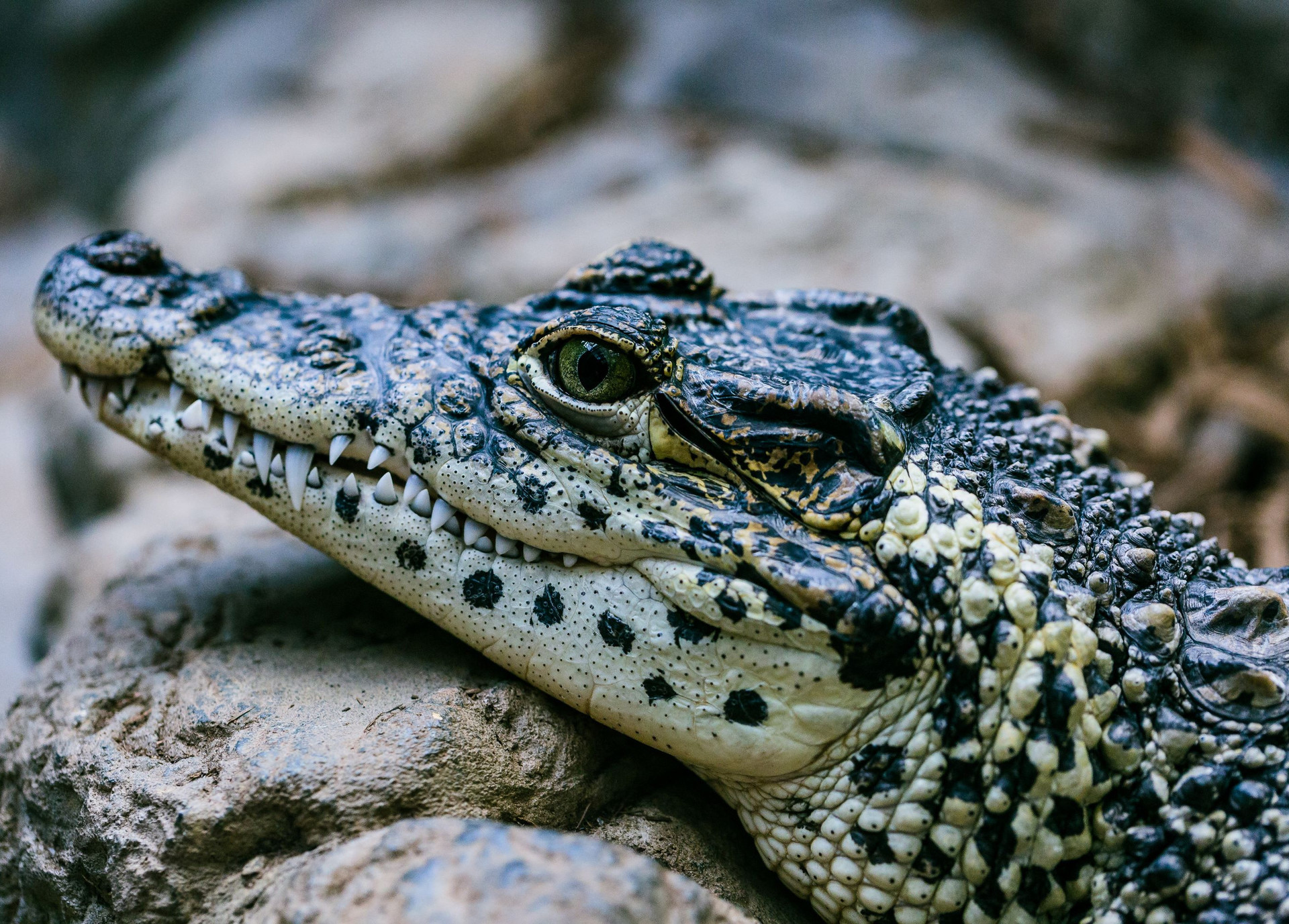
Exotic Leather
A life of horror, for some, is only ended being skinned alive. We can change this!
Millions of wild animals are killed for their skin every year to produce exotic leather, they are either bred and killed on farms, or caught in the wild. Many are turned into shoes, watch wrist bands, and handbags.
So much of this trade operates entirely outside of the law. For example, it is likely there are as many python skins traded illegally as there are traded legally. Skins from wild pythons are routinely mixed in stockpiles of skins from ‘legally-sourced’ pythons prior to export.1
Many endure a lifetime of fear and pain, simply to produce shoes or a handbag. These animals deserve so much better.

Crocodiles suffering on farms
Crocodiles and alligators are incredible survivors. But these fascinating creatures, who first appeared on the earth around 200 million years ago, are facing a threat like never before.2
And that threat is unethical fashion.
These animals whose ancestors lived amongst the dinosaurs are farmed and killed in staggering numbers simply so their skin can be turned into shoes and handbags.
Crocodile farming and harvesting eggs from the wild are legal in some parts of the world, but these wild animals are entirely unsuited to farming and the result is cruel and distressing.
- 90% of injuries that farmed crocodiles suffer are caused by their environment.
- Crocodiles are wounded through fighting and develop deformities because they can’t walk, swim, or express any of the behaviours they would in the wild.
- Wounds easily become infected in water that is polluted by overcrowding.
- Crocodiles have two-centimetre-thick skulls and slaughtermen resort to barbaric methods including repeated blows with axes or baseball bats to smash through the animal’s skull.
- Crocodiles suffer extreme pain during the slaughter process, they often die a slow death and some even experience the unimaginable agony of being skinned alive.
- Farmed crocodiles are usually slaughtered at two to three years of age. In the wild they can live for 70 years.4

A large group of crocodiles crowded together on a small platform with more animals in the water
Caught and farmed snakes
Mainly pythons but also other snake species are bred in captivity or caught in the wild in Southeast Asia for fabricating leather-products. The removal of eggs or juvenile snakes from the wild to raise them in farms is also a method. Independent of their origin at the end they are brutally slaughtered for their skins. Often python skins from wild-caught animals are purposefully declared as captive-bred so that they can be exported.
- Wild snakes are captured with snares and sticks, put in bags and then transported to slaughterhouses. This process often leaves them traumatized, injured and distressed.
- On farms the animals are kept in tiny cages with no place to stretch or hide, no branches and without cooling and basking zones critical for regulating the animal’s body temperature.
- Snakes are killed by decapitation, drowning and bloating which involves the python’s mouth and anus being taped shut and the alimentary canal is filled with air using a compressor. This horrible slaughter methods cause great pain, fear, and stress.
What are we doing?
- Take the Wear it Kind pledge and commit to never buying exotic leather.
- Consumer pressure drives change, and your voice really can make a difference. Speak, or write, to the management of any store selling exotic leather.
- Use our Wear it Kind shopping guide to help you make great fashion choices.
Source
2. Smithsonian 2012, ‘The top 10 greatest survivors of evolution,’ https://www.smithsonianmag.com/science-nature/the-top-10-greatest-survivors-of-evolution-118143319/
3. O’Connell, S 2006, ‘Crocodile farms: is it cruel to keep these wild creatures captive?’, The Independent, https://www.independent.co.uk/climate-change/news/crocodile-farms-is-it-cruel-to-keep-these-wild-creatures-captive-418794.html
4. O’Connell, S 2006, ‘Crocodile farms: is it cruel to keep these wild creatures captive?’, The Independent, https://www.independent.co.uk/climate-change/news/crocodile-farms-is-it-cruel-to-keep-these-wild-creatures-captive-418794.html

